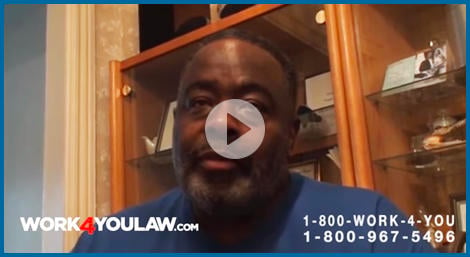Wrongful Death FAQ
How long do I have to file a claim?
There is a limited amount of time to file a wrongful death claim. This time limit is known as the statute of limitations. The statute of limitations for most wrongful death cases in New York is two years from the date of death, but in some cases, especially against a city or other governmental entity, the time to act may be much shorter. Failure to file within two years could jeopardize the future of your potential claim. It is best to call an experienced personal injury lawyer as soon as possible after the death or injury so that your rights are protected.
About the Law Offices of Kenneth A. Wilhelm
The Law Offices of Kenneth A. Wilhelm is a personal injury litigation firm with an unwavering dedication to its clients. With more than 42 years of experience, our firm strives to obtain the best compensation for those who have been injured or those who have lost a loved one due to an accident or by someone else's negligence. We handle cases dealing with personal injury, medical malpractice, wrongful death, workers' compensation, dental malpractice, motor vehicle accidents including car, bus, train and truck accidents, pedestrian accidents, rape, paralysis, comas, seizures, false arrest, lead poisoning, trips and slips and falls, falls on sidewalks or stairs, elevator accidents, construction accidents, Erb's palsy, cerebral palsy, brain damage, blindness, hearing loss, dog bite cases, fire and smoke inhalation accidents, bicycle accidents, falls from windows or scaffolds, food poisoning injuries, and many other types of accidents and injuries. Please contact us TOLL FREE 24 hours a day, 7 days a week at 1-800-WORK-4-YOU (1-800-967-5496). WE CAN EVEN COME TO YOU. There is no attorneys' fee unless we recover money for you. We can also help with personal injury cases in New Jersey, Connecticut, Pennsylvania, or Florida. If you have been seriously injured in any of the 50 U.S. states, please call us and we will try to help you with your case. Other TOLL FREE phone numbers for us are:1-800-RADIO-LAW, 1-888-WYPADEK, OR 1-800-LAS-LEYES Please visit us at: http://www.WORK4YOULAW.comWhat is the potential value of a wrongful death claim?
No amount of financial compensation can adequately replace the life of a loved one. A successful wrongful death claim can, however, provide a family with much needed financial support during a difficult time.
There are many factors that must be considered when calculating the value of a wrongful death claim. Was someone liable? Did the victim have a job? How long was the victim planning to work before retirement? Compensation may be available for lost future income. Other factors that will be considered include the victim's life expectancy, his or her health, age, habits, past earnings and benefits. The families of wrongful death victims can also seek compensation for a number of other economic and non-economic losses.
What will you need to file a claim?
While preparing to file a wrongful death lawsuit, you will need:
- Details regarding the facts of the incident
- The names of the witnesses and the description of any evidence you may have
- Photographic evidence if any
- Copy of a police report or incident report
- Insurance information for the parties involved
- Details relating to the decedent's salary and benefits
Who can file a wrongful death claim?
There are a number of potential claimants in a wrongful death case. Determining who can file a claim can be a complex issue. Survivors who are typically entitled to pursue a wrongful death claim include:
- The spouse of the decedent
- The children of the decedent
- The decedent's parents if the victim did not have any children
- The parents of the decedent if he or she was a child or minor
- Other people who were financially dependent on the decedent
- Brothers and sisters of the victim if there are no living parents or children
- The public administrator if no authorized relative exists.
What is the difference between civil and criminal cases?
Individuals who are responsible for someone's death may face criminal charges for murder or manslaughter. He or she may face civil charges as well if the decedent's family chooses to file a lawsuit. During the criminal proceedings, the prosecution will have to prove beyond a reasonable doubt that the defendant is guilty. During a civil lawsuit, the victim's family will only have to prove that the negligence or wrongdoing of the defendant contributed to the accident. You may remember that O.J. Simpson was not convicted on criminal charges for the murder of his wife, but Nicole Brown Simpson's family successfully sued him in civil court. O.J. Simpson did not go to prison for the murder, but the victim's family was able to hold him civilly liable for the loss of their loved one.
What is the difference between murder and wrongful death?
Murder is just one of many types of wrongful death. You have the right to sue someone for civil damages if he or she killed your loved one. You can also sue someone whose act of negligence resulted in a wrongful death. Therefore, wrongful death can involve an intentional act, but it can also involve an act of recklessness or carelessness.
What are some examples of wrongful death?
A significant number of wrongful death claims result from car accidents. If your loved one was killed by a distracted, speeding, intoxicated or otherwise careless driver, you could file a wrongful death claim against the at-fault party. Wrongful death claims may also stem from:
- Slip-and-fall or trip-and-fall accidents
- Construction accidents
- Transportation accidents
- Aviation accidents
- Defective products
- Medical malpractice
- Food poisoning
- Act of violence
What is a wrongful death claim?
A wrongful death is when someone is killed by a wrongful act or an act of negligence. If a person is killed because of the wrongful conduct of another, the decedent's surviving family members may file a wrongful death claim against those responsible for that individual's death. A wrongful death lawsuit is separate from criminal charges and neither proceeding affects nor controls the other. This means that a defendant who has been cleared or acquitted in a murder case may still be sued in a civil action by the victim's family for wrongful death.









